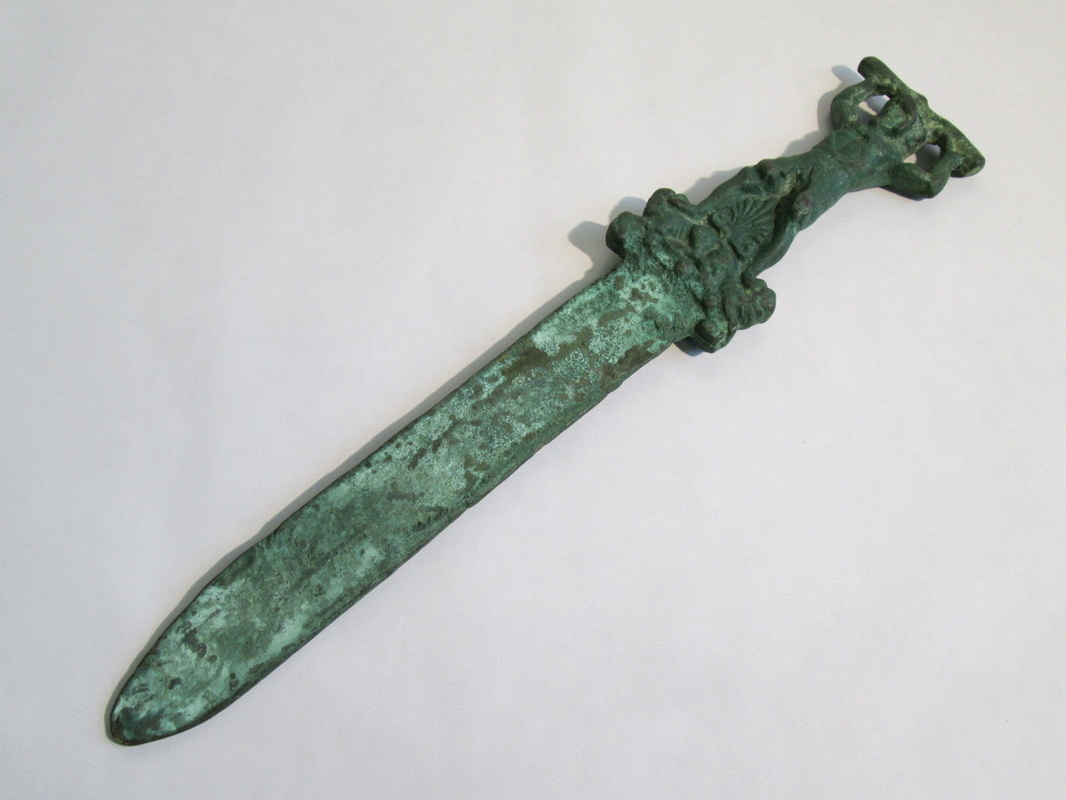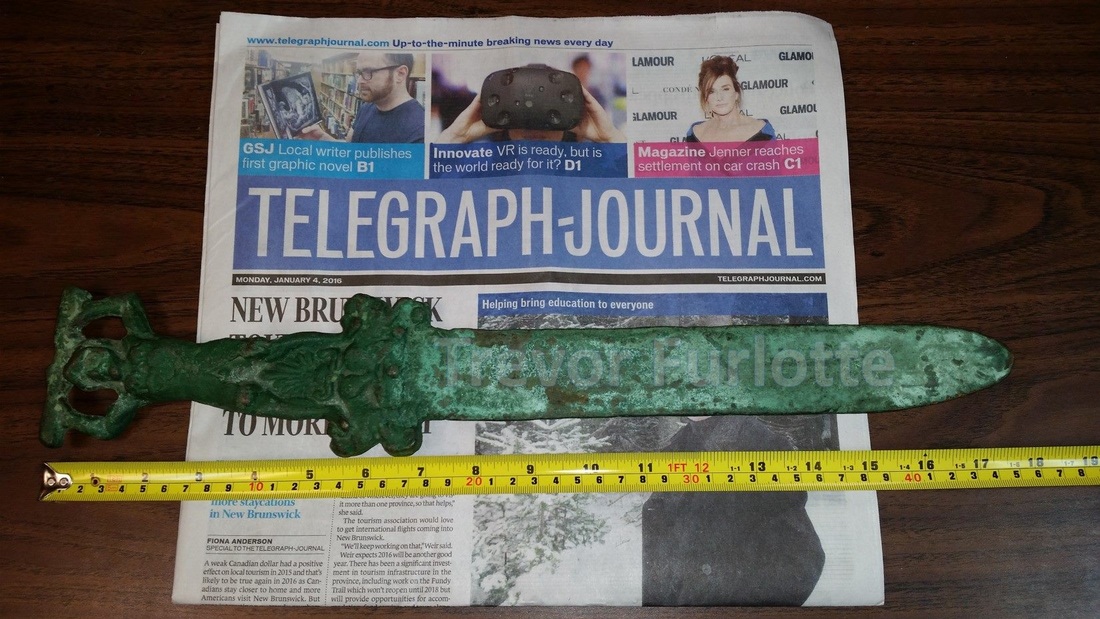To that point, I'd like to document a recent suite of falsehoods from "Roman sword" advocate J. Hutton Pulitzer that is directly related to his ongoing struggle to preserve the credibility of his sword campaign. As Jason Colavito wrote the other day:
"Pulitzer has made himself the story by asking us to accept his word for his claims and offering no evidence to support them."
How good is his word?
Not so good.
In one of a series of bizarre audio responses to questions put to him by a member of one of his Facebook groups, Pulitzer told a number of lies about the sword purchased from Italian eBay. Here is what he said (I've put the lies in bold to make them easier to spot):
"We have attempted to contact [the seller's of the sword on eBay] over ten different times . . . I think they're worried about contact because they're posting pictures from the Naples Museum but sending a different cast iron sword in response. So what actually happened is when this story broke, people started looking at the sword and we all started asking questions of the sword and the people in Italy that were selling it . . . actually eBay shut them down because eBay realized that they were taking pictures of the museum sword which [unintelligible] supplied to eBay and they were actually supplying a different sword that was fake, cast iron, and whatever. So, I'm not sure they're going to want to answer a lot of questions when they were using authentic photos to ship a fraudulent piece of merchandise."
He says that the eBay photo is of the actual sword in the Naples Museum. Here is the photo from eBay (link still active as of this writing):
So, wait, does Trevor Furlotte now own the original Roman sword from the Naples Museum? Because that's what Pulitzer said was in the photos on eBay. Congratulations, Trevor!
Oh no, wait, sorry.
It should be obvious that just about everything that Pulitzer said about the eBay sword is a lie:
- The image on eBay was not of the "original" sword in the Naples Museum (no-one has produced an image of that yet, suggesting it does not actually exist);
- The seller was not "shut down by eBay" because of fraudulent behavior. They were selling a reproduction sword that has been hawked as a tourist souvenir in Italy since at least the mid-1970's;
- The seller did not ship Furlotte a "cast iron, or whatever" sword. They shipped him the same sword that was shown in the photos. It is a copper alloy sword, probably of the same vintage as Pulitzer's "Roman sword."
These are not trivial errors in the Roman sword story. They are intentional falsehoods meant to duck and dodge the issue of why there are so many "Roman swords" floating around out there. These lies speak directly to his credibility on other aspects of his claim.
I feel bad for the person who he decided to chastise publicly for asking him questions he couldn't answer truthfully, but his answers demonstrate something important about his ability to tell the truth. If his credibility is part of the story (and I think it is), this is a good data point.
Thanks for taking one for the team, Ms. Simons.




 RSS Feed
RSS Feed
